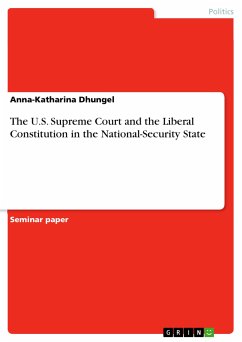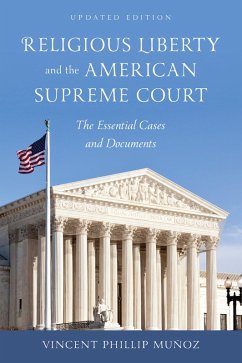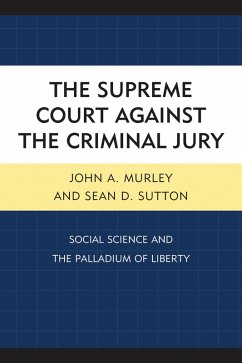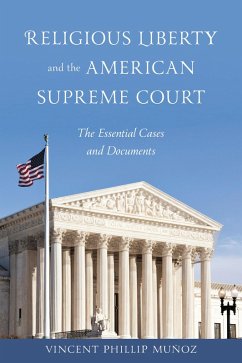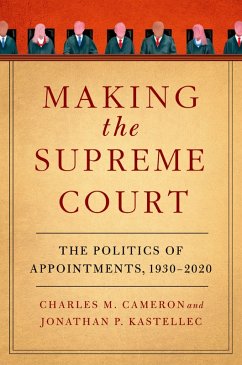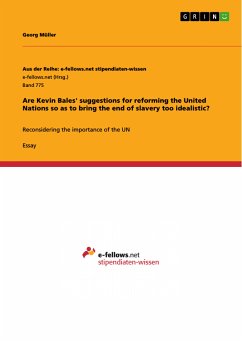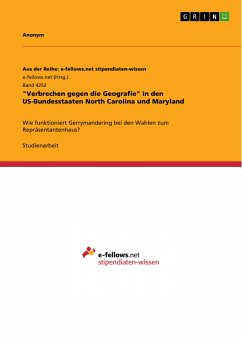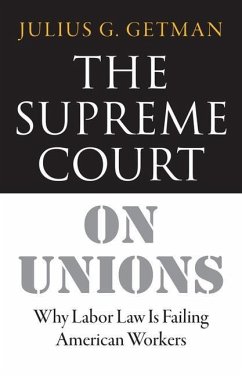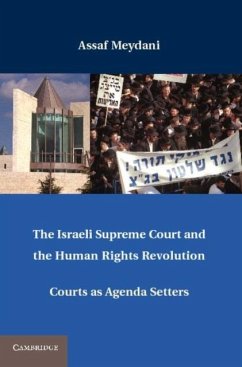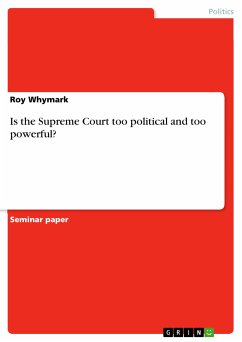
Is the Supreme Court too political and too powerful? (eBook, PDF)

PAYBACK Punkte
0 °P sammeln!
Seminar paper from the year 2012 in the subject Politics - Region: USA, grade: 84%, Birkbeck, University of London (University of London), course: American Politics, language: English, abstract: The US Supreme Court bears the incredible responsibility for deciding the constitutional validity of cases by judging the merits of each against the Constitution. Given the context in which the Constitution was written and its often ambiguous language, the task facing the nine Justices is not simple and the Court's activities not without controversy. The influence of the Court has generated swathes of ...
Seminar paper from the year 2012 in the subject Politics - Region: USA, grade: 84%, Birkbeck, University of London (University of London), course: American Politics, language: English, abstract: The US Supreme Court bears the incredible responsibility for deciding the constitutional validity of cases by judging the merits of each against the Constitution. Given the context in which the Constitution was written and its often ambiguous language, the task facing the nine Justices is not simple and the Court's activities not without controversy. The influence of the Court has generated swathes of literature concerning how the Constitution is applied and how effective those applications have been in shaping public policy. There can be little doubt that the Supreme Court is both powerful and political and has had a major impact on American society. Indeed, it was the Court that ruled racial segregation in schools to be unconstitutional (Brown v. Board of Education 1954); guaranteed the rights to counsel and due process (Gideon v. Wainwright 1963); established the constitutional right of abortion (Roe v. Wade 1973); and famously, or perhaps infamously, halted the Florida recount, effectively awarding the presidency to George W. Bush (Bush v. Gore 2000). This essay takes the notion that the Court is both political and powerful as given but explores whether it is too political and too powerful, to the degree that its decisions have a detrimental impact on the functioning of US democracy. In considering this issue, one needs to consider outcomes (how the Court has actually shaped public policy). This essay will focus on three policy areas where the Court has made landmark decisions (abortion, civil rights, and gun control) and explains that while the Court is, by its nature, highly political and also powerful, it does not operate in a vacuum and its influence on society in constrained by the separation of powers, the federal nature of politics, and public opinion. Supreme Court functions Before turning to the Supreme Court's influence on public policy, it is worth understanding what the Court is intended for. Article III of the Constitution states that 'the judicial power of the United States shall be vested in one supreme court'. This role manifests itself in two judicial review functions: (i) statutory interpretation; and (ii) constitutional interpretation of legislation. [...]
Dieser Download kann aus rechtlichen Gründen nur mit Rechnungsadresse in A, B, BG, CY, CZ, D, DK, EW, E, FIN, F, GR, HR, H, IRL, I, LT, L, LR, M, NL, PL, P, R, S, SLO, SK ausgeliefert werden.




